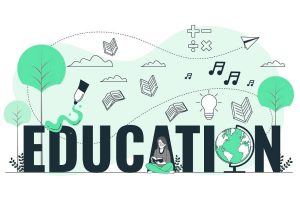Exploring the Vital Role of Parents in Child’s Education

The role of parents in a child’s education is central to a child’s overall development. It involves more than helping with homework or going to school meetings. It involves providing comprehensive support motional, social, and academic throughout the various stages of a child’s educational journey. The role of parents in early childhood education is especially important, as it lays the groundwork for future learning. It’s about creating a supportive atmosphere that encourages curiosity and a passion for learning.
The Role of Parents in Child’s Education
The role of parents in a child’s education goes far beyond the classroom walls. It’s about everyday interactions where learning moments are created. Parents actively participate in their child’s education by reading together, discussing current events, and encouraging questions. This involvement helps build a child’s confidence and eagerness to learn.
Additionally, the importance of parents in education lies in their ability to create a stable and supportive home environment. This stability is crucial for children as they navigate their educational path. It’s not just about academic support but also about teaching life skills like time management and setting goals. Parents who show interest in their child’s education can inspire a lifelong love of learning. By being present and involved, parents effectively contribute to their child’s academic achievements and overall well-being, making their role in education both unique and invaluable.
The Importance of Parental Involvement in Education
Why is parental involvement so crucial? The answer lies in the unique and enduring influence parents have on their children. When parents are involved in their child’s education, it leads to a range of benefits, such as:
- Enhanced Academic Performance: Active parental involvement often results in higher grades and test scores. When parents show interest in their child’s education, it encourages the child to perform better academically.
- Improved Behavior and Attitude: Children with involved parents typically exhibit better behavior and have a more positive attitude towards school. This can lead to fewer disciplinary issues and a greater willingness to engage in classroom activities.
- Increased Motivation and Self-Esteem: The role of parents in a child’s education is pivotal in boosting a child’s motivation and self-esteem. Supportive parents can instill a sense of confidence and drive in their children, which is essential for academic and personal success.
- Better Communication Skills: Involvement in education allows parents to teach and model effective communication skills. This helps children express themselves and understand others, which is beneficial both in and out of school.
- Stronger Parent-Child Relationship: The time spent together on educational activities helps strengthen the bond between parent and child. This close relationship fosters a secure learning environment.
- Foundation for Future Learning: Particularly in the role of parents in early childhood learning, parental involvement lays a solid foundation for future educational pursuits. Early engagement in a child’s learning journey sets a precedent for lifelong educational involvement.
The Role of Parents in Early Childhood Education
The role of parents in early childhood education is particularly significant and offers numerous benefits of involving parents in education. This phase is the foundation of a child’s learning path. Parents can foster a love for learning from an early age by engaging in simple yet effective activities.
- Reading Together: Sharing stories enhances language skills and imagination. It also creates a bond and instills a habit of reading.
- Exploratory Play: Encouraging play that involves exploration and problem-solving helps develop critical thinking and creativity.
- Everyday Learning: Turning daily routines into learning opportunities, such as counting objects or identifying colors, enhances cognitive skills.
- Positive Reinforcement: Celebrating small achievements builds confidence and a positive attitude towards learning.
- Social Skills Development: Arranging playdates and group activities enhances social skills and teaches cooperation.
- Communication: Regular, open conversations about what they learned or experienced aid in language development and emotional intelligence.
Activities for Parent-Child Enrichment
Engaging in activities for parent-child enrichment does not have to be complex or time-consuming. Simple, everyday interactions can significantly contribute to a child’s learning and development, emphasizing the role of parents in a child’s education.
- Nature Walks: A simple walk in a park can turn into a mini science lesson. Parents can point out different types of plants, animals, and insects, discussing their characteristics.
- Cooking Together: When parents cook with their children, it’s a practical way to teach math through measuring ingredients and understanding fractions. Following recipes can improve reading and comprehension skills.
- Arts and Crafts: Doing arts and crafts allows children to express themselves creatively while developing fine motor skills through activities like cutting, gluing, and drawing. Parents can discuss colors, shapes, and textures, making it a learning experience.
- Puzzle Solving: Working on puzzles is a brain-boosting activity. It improves spatial awareness, problem-solving skills, and attention to detail. Puzzles can be adapted to the child’s age and skill level, making them a challenging and satisfying activity for both parent and child.
- Board Games: Board games are more than entertainment. They teach children about rules, strategy, and fair play. Games involving numbers and words can enhance math and language skills. Additionally, they’re a great way to teach children about winning gracefully and handling loss.
- Music and Dance: Sharing music and dance is a joyful way to develop a child’s auditory and physical skills. Learning rhythms, singing along, and moving to music improves coordination, listening skills, and can be a wonderful outlet for self-expression.
The role of parents in a child’s education is a critical factor in the holistic development of children. Their involvement, support, and engagement are key to ensuring that children succeed academically and develop the skills and attitudes necessary for lifelong learning and growth. As partners in education, parents have the power to influence and enhance their child’s educational journey significantly. With a commitment to nurturing young minds, Billabong High School Provides an environment where parental involvement is valued and encouraged, making it an ideal choice for families seeking an inclusive and supportive educational community.








